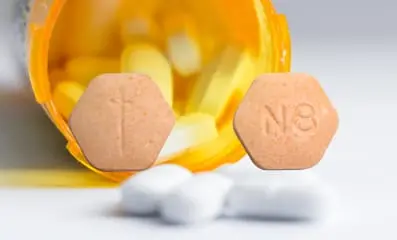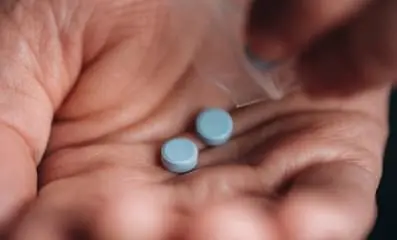
Marine Corps Substance Abuse Program
Substance abuse is a pressing issue within the United States Marine Corps (USMC), affecting individuals at all levels of rank and service. Whether it’s alcohol, prescription medications, or illicit drug use, addiction can have harmful effects on the overall well-being of Marines.
Acknowledging this reality, the Substance Abuse Rehab Program (SARP) aimed at supporting service members plays a critical role. This article outlines the components of this program and the resources available for both active-duty Marines and veterans struggling with addiction.
Key Takeaways
Substance abuse within the Marine Corps is a significant concern, necessitating comprehensive support and intervention. This article covers:
- Substance abuse among Marines involves the misuse of drugs or alcohol due to various factors such as stress and trauma.
- The Marine Corps Substance Abuse Program comprises various components to support Marines in overcoming drug use disorder.
- Marines have access to various resources and support services to assist them in overcoming problematic substance use.
Take the first step towards recovery and a drug-free life by contacting Indiana Center for Recovery at (844) 650-0064 today.

Understanding Substance Abuse Among Marine Corps
Substance abuse in the Marine Corps refers to the harmful use of substances like drugs and alcohol among military members. It’s a serious issue that can affect both individuals and the overall readiness of the Marine Corps. Substance abuse can lead to several negative consequences, including impaired judgment, decreased performance, and health problems.
Alcohol is one of the most commonly abused substances in the Marine Corps. It’s readily available and often used in social settings. Many Marines also misuse prescription drugs, either obtained illegally or through legitimate prescriptions, to manage pain or mental illness. Additionally, the Marine Corps may also abuse marijuana and illicit drugs like cocaine or meth.
There are various reasons why Marines may engage in substance misuse. These include coping with the demands of military life, such as combat deployments, frequent moves, and separation from loved ones. Some individuals may also have underlying mental health issues like depression or post-traumatic stress disorder (PTSD), which they attempt to self-medicate with substances.
Fortunately, there are resources available to help Marines struggling with problematic drug and alcohol consumption issues. The Marine Corps Substance Abuse Program offers a range of interventions aimed at addressing the root causes of drug addiction and providing recovery support. These interventions involve education, counseling, support groups, and rehabilitation services.
Components Of The Program
The Marine Corps Substance Abuse Program offers various components to support service members in overcoming addiction and maintaining a healthy lifestyle. Let’s explore these components:
Prevention Education Efforts
The program emphasizes educating Marines about the risks associated with substance abuse and promotes preventive measures to mitigate these risks. Through workshops, seminars, and training sessions, service members learn about the consequences of substance misuse and develop skills to resist peer pressure and make healthy choices.
Assessment And Screening
Early identification of substance abuse issues is vital for effective intervention. The program utilizes assessment tools and screening procedures to identify Marines who may be struggling with problematic substance use issues. Through confidential evaluations, individuals are assessed for their substance use patterns and related behaviors, enabling prompt intervention and support.
Medical Detoxification
For Marines experiencing physical dependence on substances, medical detoxification is the best option as it provides a safe and supervised process for managing withdrawal symptoms. Under the care of healthcare professionals, Marines undergo detoxification in a controlled environment, minimizing discomfort and ensuring their safety throughout the process.
Evidence-Based Therapies
Evidence-based therapies such as cognitive behavioral therapy (CBT), eye movement desensitization and reprocessing (EMDR), and motivational interviewing (MI) are utilized to address underlying issues contributing to drug and alcohol abuse. These therapies help Marines develop coping strategies, improve problem-solving skills, and enhance motivation for change.
Medication-Assisted Treatment (MAT)
In some cases, medication-assisted treatment (MAT) may be recommended as part of the recovery process. MAT combines FDA-approved medicines with counseling and behavioral therapies to address substance use disorders (SUDs) effectively. By reducing cravings and withdrawal symptoms, MAT supports Marines in maintaining sobriety and achieving long-term recovery goals.
Dual Diagnosis Treatment
Many Marines dealing with substance abuse also have co-occurring mental health disorders, such as anxiety, depression, and PTSD. The program offers dual diagnosis treatment to address both issues simultaneously. This integrated approach ensures that Marines receive comprehensive care that tackles both conditions, increasing the likelihood of a successful recovery.
Family Involvement
Family involvement is key to the success of substance abuse treatment for Marines. The program encourages the participation of family members in the treatment process to provide emotional support, education, and encouragement. Family therapy sessions help strengthen relationships, improve communication, and address family dynamics that may result in substance abuse.
Peer Support Groups
Peer support groups such as Alcoholics Anonymous (AA) and Narcotics Anonymous (NA) offer Marines the opportunity to connect with others who understand their experiences firsthand. Through shared stories, encouragement, and accountability, peer support groups provide a sense of belonging and empowerment on the journey to recovery.
Holistic And Alternative Therapies
In addition to traditional therapies, the treatment program may incorporate holistic and alternative therapies to address recovery’s physical, emotional, and spiritual aspects. These may include yoga, meditation, acupuncture, and art therapy, which can complement traditional treatment approaches and promote overall well-being.
Aftercare Planning
Transitioning back into regular duty or civilian life after completing treatment requires careful planning and ongoing support. The program provides comprehensive aftercare planning to ensure Marines have access to continued support services, relapse prevention strategies, and resources for maintaining sobriety in the long term.
By utilizing a range of strategies and interventions, the Marine Corps Substance Abuse Program strives to empower Marines to lead healthy, substance-free lives.
Resources And Support Services For Marine Corps
Several resources and support services are available to provide help and guidance to Marines facing substance misuse challenges. Let’s explore some of them:
Marine Corps Community Services (MCCS)
The MCCS Substance Abuse Counseling Program is designed to help Marines struggling with substance abuse issues. This program offers counseling services and support groups to assist Marines in overcoming drug and alcohol use disorder (AUD) and achieving recovery. Marines can access these services confidentially and receive personalized support tailored to their needs.
Military OneSource
Military OneSource is a comprehensive support program offering various services to military personnel and their families. Military OneSource serves as a one-stop shop for addressing various needs, from counseling and financial assistance to educational resources and legal advice. This confidential service is available 24/7 for military members via phone, online chat, or in-person sessions.
Veterans Affairs (VA) Treatment Program
The Veterans Affairs (VA) Treatment Program offers specialized treatment and support for veterans, including former Marines, struggling with substance abuse. Services may include counseling, detoxification, group therapy, medication-assisted treatment (MAT), and support groups. Military veterans can contact their local VA facility to learn more about available resources and treatment options.
Nonprofit Organizations
Several nonprofit organizations also offer support services to U.S. Marine Corps personnel. Examples include the National Institute on Drug Abuse (NIDA) and the Substance Abuse and Mental Health Services Administration (SAMHSA). These organizations provide resources, information, and support to Marines struggling with substance misuse and mental health issues, as well as their families.
Helplines For Immediate Assistance
Immediate assistance is crucial for Marines in crisis. Helplines and hotlines provide round-the-clock support and guidance for individuals in need. Examples include:
National Suicide Prevention Lifeline: 1-800-273-TALK (8255)
- Veterans Crisis Line: Dial 988, then Press 1, or Text 838255
- U.S. Marine Corps DSTRESS Line: 1-877-476-7734
- SAMHSA National Helpline: 1-800-662-HELP (4357)
These helplines connect Marines with skilled professionals who can offer immediate assistance and help coordinate further support as needed.
By accessing these valuable resources, Marines can receive the assistance and support they need to overcome substance abuse and lead fulfilling lives.
Frequently Asked Questions (FAQ)
The Substance Abuse Rehab Program (SARP) for the Marine Corps is a support system for Marines dealing with substance abuse problems like alcohol or drugs. It offers counseling, education, and resources to help Marines overcome these issues and get back on track.
SARP aims to assist Marines in making positive changes in their lives, ensuring they remain fit for duty and ready to serve. By providing guidance and support, SARP helps Marines address drug and alcohol abuse challenges and move towards a healthier and more productive lifestyle.
SARP, or the Substance Abuse Rehabilitation Program for Marines, helps with various substance abuse issues like alcohol, drugs, and prescription medication misuse. Marines struggling with these problems can seek support through SARP for guidance and assistance in overcoming their challenges.
The program aims to provide education, counseling, and resources to help Marines make positive changes in their lives and maintain readiness for duty. Whether it’s alcohol, drugs, or other substances causing issues, SARP offers a path toward recovery and a healthier lifestyle for Marines.
SARP provides confidential counseling options for Marines. This means that Marines can talk about their substance abuse issues in a private setting without worrying about others finding out. Confidentiality is essential because it encourages Marines to seek help without fear of judgment or consequences.
Through these counseling sessions, Marines can discuss their challenges, receive support, and develop strategies for recovery. Knowing that their conversations are kept confidential helps Marines feel more comfortable opening up and seeking the assistance they need to overcome drug abuse problems.



